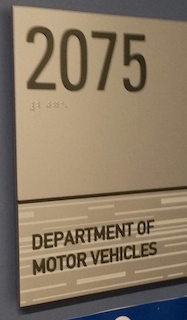Effective January 1, 2020, the law changed on what a judge is allowed to report to the DMV about certain convictions (and then the DMV will suspend the license, revoke it or restrict it) and what convictions allow a judge to suspend, restrict or revoke a person’s driver’s license.
Senate Bill (SB) 485 is this new law, which this article will explain.
First and foremost, it is important to understand that SB 485 does not change the obligation of a judge (through his or her clerk) to report convictions to the DMV for
- Vehicle Code § 13202.5 (certain violations by a person between ages 13 and 21 involving an alcoholic beverage or a controlled substance);
- Vehicle Code § 191.5(a-b) (gross vehicular manslaughter while intoxicated by alcohol and / or a controlled substance);
- Vehicle Code § 192.5(a-b) (the unlawful killing of another without malice aforethought, including while driving an automobile or a boat);
- Vehicle Code § 23103.5 (a “wet reckless,” meaning a DUI that has been “pled down” to a reckless driving);
- Vehicle Code § 23140 (Under 21 DUI with a BAC of 0.05% or higher, by weight);
- Vehicle Code § 23152 (misdemeanor DUI);
- Vehicle Code § 23153 (felony DUI); and
- Vehicle Code §§ 23154, 23220, 23221, 23222, 23223, 23224, 23225 and 23226.
However, as of January 1, 2020, a judge is no longer authorized to impose a suspension, revocation or restriction, or order a delay of licensure for a person convicted of:
- Solicitation of prostitution (Penal Code § 647(b)) under Vehicle Code § 13201.5 (previously, a judge could suspend the driving privilege of any person, for not more than 30 days, upon a conviction for 647(b) or soliciting or engaging in prostitution or a specific lewd act within 1,000 feet of a private residence, with the use of a vehicle);
- Vandalism (Penal Code § 594) under Vehicle Code § 13202.6 (previously, a judge was required to suspend, restrict or delay licensure of any person age 13 or older who is convicted of vandalism);
- A minor convicted of unlawful possession or use of a firearm under Vehicle Code § 13202.4;
- Offenses related to possession, purchase, sale or transport of controlled substances (Health & Safety Code §§ 11350, 11351, 11352, 11353, 11357, 11360 or 11361) involving the direct or incidental use of a motor vehicle; or
- Certain convictions for a minor convicted of possession / use of a controlled substance or alcohol pursuant to Vehicle Code § 13202.5 (these include violations of Business & Professions Code §§ 4110, 4111, 4112, 4113, 4113.5, 4114, 4115, 4116, 4117, 4118, 4118.5, 4119.01, 4119.1, 4119.11, 4119.2, 4119.3, 4119.4, 4119.5, 4119.6, 4119.7, 4119.8, 4119.9, 4120, 4121, 4122, 4123, 4124, 4125, 4126, 4126.5, 4126.9, 25658, 25658.5, 25661 or 25662, Health & Safety Code § 11000 – 11651; and Penal Code §§ 529.5 and 647(f) (public intoxication).
It should be noted that any court orders issued prior to January 1, 2020 or any sanctions imposed by the DMV based on a court order prior to January 1, 2020, for the above offenses will remain in full effect, unfortunately.
We think this new law is generally good because, previously, when one did suffer a conviction for one of the specified offenses, the driver’s license suspension or revocation would affect that person’s ability to attend medical appointments, buy groceries and attend school. Instead of having a driver’s license, the person had to take public transportation or cabs, which can be extremely expensive. This can be especially painful in rural areas where public transportation and cabs are difficult to arrange. Buying groceries or going to the bank can become an “all-day” task.
Yet there are disadvantages to the law insofar as when a motor vehicle is being used as an integral part of committing the crime, enabling commission of the crime, the new law does not remove that ability to continue violating the law. The law seems to recognize this issue by preserving the judge’s ability to report certain convictions to the DMV for further action, such as in DUI.
For more information about drivers license suspensions, please click on the following articles:
 DMV
DMV